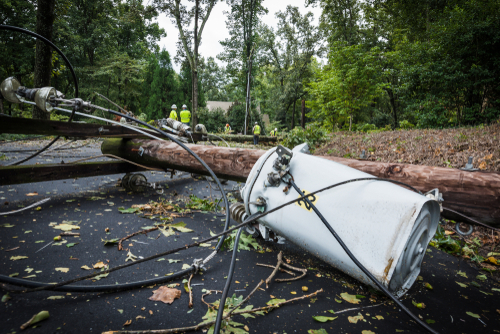Editor’s note: FM Perspectives are industry op-eds. The views expressed are the authors’ and do not necessarily reflect those of Facilities Management Advisor.
Preparing reliable energy access for your facility can be essential if interruptions in power have big negative consequences. However, all types of facilities need to consider what effects a power outage would have—especially since one is bound to happen sooner or later. In any case, it might be time for a backup power system.

Why Should a Facilities Manager Pay Attention to Energy Access?
Power outages happen regularly across the U.S., and the downsides of being without power can range from unpleasant to disastrous.
According to U.S. power grid reliability statistics, even the most reliable states like Delaware, Florida, and North Dakota together had an average of 80 minutes of power outages a year per user. This duration is not the end of the world for all facilities, but you have to keep in mind that it is an average. If your facility is located in an area with longer outages, the time spent without energy can easily go up by a lot.
Additionally, the need for consistent energy access also depends on the downsides of being without power. For some facilities like hospitals, pharma, and perishable goods companies, the damage of having only a 15-minute power outage can be immense. In fact, there are often regulations for hospitals mandating certain backup power capacities.
At the same time, facilities managers of data centers, manufacturing plants, and other companies should also consider preparing their facilities for backup power depending on the needs of the customers and the business.
What Energy Backup Methods Can Facilities Use?
One of the main energy backup methods for facilities is a combination of a UPS (uninterruptible power supply), an automatic transfer switch, and a backup generator. This combination maintains power to important devices and allows you to generate a lot of energy for a reasonable price during an emergency.
The UPS makes sure critical devices get energy while the automatic transfer switch turns to the backup power generator, which needs time to start up. To choose the right size generator, you want to look at your typical facility power consumption and implement a safety margin. In theory, certain facilities could consider batteries, but these typically have lower power capacities and tend to be pricier.
No matter how likely a power outage is at your facility, installing good backup power is not enough. If you use a backup generator, you still need to maintain and test the equipment regularly and prepare for your fuel needs in advance. Being ready now can help you avoid disaster later.
Mats Claes is the head editor and founder of Generator Decision, an online media brand whose content aims to help people choose the right electrical generators and how to get the most out of these machines.

